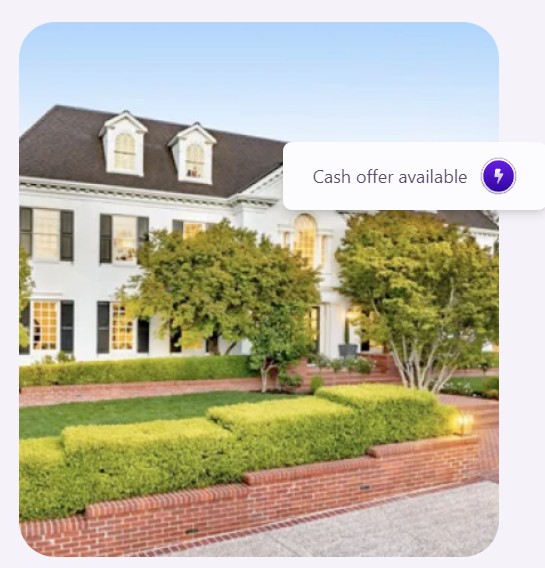Do you long to own a home, but it’s not the right time? Perhaps you’re paying off a student loan. Maybe a down payment isn’t affordable at this point. Or your credit score might need boosting to qualify for a mortgage.

Nonetheless, you can be a happy homeowner in a few years! A rent-to-own program makes this possible through investor financing.
In this post, I describe what the rent-to-own (RTO) process entails. Then, I profile several firms offering such programs starting with Divvy Homes and 7 other alternatives to this company.
Here’s a walk-through of what these companies can do for you.
Unique Investors
A rent-to-own (RTO) company consists of real estate investors. They pay cash for homes, renting them to those financially capable of future ownership.
Each firm has a structured program, enabling you to lease a home for a certain period with the intent to buy it.
While leasing, you beef up your financial status, gaining mortgage eligibility. Companies have various ways of helping you do this, detailed below.
Meanwhile, the investment company is your landlord. Your monthly payments include rent and specific fees. Some compensate the firm for its cash outlay and administrative costs.
Joining a Program
First, you apply online at the company website. The application will require your annual household income and verification documents. You’ll also undergo a full background check and credit evaluation.
Once the company approves you, it calculates your monthly rent. In turn, this amount stipulates the home purchase price you can afford.
Signing the Lease
Next, you obtain a lease contract. This agreement defines your responsibilities and those of the investment company. Firms vary by lease periods, ranging from one to five years.
Depending on the particular RTO program, each monthly rent may include a fee credited toward your future down payment. In this way, throughout the lease, your mortgage eligibility climbs!
After lease signing, you engage a realtor to find a home within your approved budget.
Contract Types
A rent-to-own agreement can be a “lease-option” or “lease-purchase.” Here’s how they differ.
Lease-Option
Upon signing this agreement, you pay an “option fee.” This amount is 1 to 5 percent of the purchase price of the home you rent. The option fee gives you first rights to buy the home from its seller.
Additionally, at lease expiration, you can decide not to buy. However, you will lose both the option fee and your rental credits. To prevent such losses, some firms let you extend the lease.
Lease-Purchase
With this contract, you’re legally bound to buy the home when the lease ends. If you don’t, the investment company can sue you.
So, why would you choose a lease-purchase agreement? It has the advantage of “locking in” the home purchase price at lease inception. However, if you can’t get a mortgage when the term ends, you’re in hot water.
Protect Yourself
Regardless of the contract type, hire an experienced real estate attorney before signing. The lawyer will explain the legal jargon, clarifying your obligations.
For instance, certain contracts require you to pay for major house repairs, such as fixing roof damage. With others, you only agree to property upkeep, such as raking leaves and mowing the grass. Some contracts allow pets, while others don’t.
Moreover, the real estate attorney will alert you to any financial hazards. For instance, a contract can end if you’re overdue with just one rental payment. Yikes!
A lawyer can also “sweeten the deal,” negotiating in your favor.
RTO Firms
In the RTO industry, Divvy Homes is well-known. For this reason, I’ll cover this company first, using its profile as a benchmark to compare the seven other alternative firms.
You’ll notice that some descriptions lack details provided in the others. Their absence means the information isn’t available online.
Divvy Homes
This investment company joined the RTO industry in 2017. The firm reports a 47 percent success rate with converting renters to homeowners.

Service Areas
Currently, Divvy buys properties in 19 cities, representing nine states, as shown here.
Property Criteria
Eligible properties are:
- townhomes, single-family homes, and condos with “fee-simple” titles
- selling for $60,000 to $300,000
- limited to 2 acres of surrounding land
Contract Type – Lease-Option.
Option Fee – You pay 2 percent of the purchase price. Divvy reserves this layout as your starting “equity credit.”
Lease Period – You can rent the home for three years, during which you can buy it anytime, using your equity credits toward the down payment.
Monthly Payment Breakdown – 75 percent rent and 25 percent “home savings.”
Home Repairs – If a major structure or system malfunctions, making your home unsafe, Divvy pays the repair costs. Examples are a damaged foundation, roof, or HVAC system.
If You Don’t Buy – Divvy sells the home, cashing your equity credits. The firm also keeps 8.5 percent of the purchase price to cover its selling costs. That’s a big chunk of money.
Breach of Contract – If you fail to make payments while leasing, Divvy will refund half of what you’ve accrued.
Closing Notes
Divvy Homes gives you three years to secure a mortgage. You’ll use the option fee and 25 percent of each monthly rent to make the down payment.
During your lease, Divvy covers the cost of house repairs. If you change your mind about buying, Divvy takes your equity credits and 8.5 percent of the home purchase price, returning the rest of what you’ve paid.
RTO Companies Like Divvy Homes
Although Divvy Homes is one of the popular Rent-to-Own companies in the USA real estate market, there are a few other alternatives as well.
In order for you to know about the various options available, we are presenting below seven other companies like Divvy Homes, so let’s get started:
Note that the ranking below is in no particular order.
1. Home Partners of America (HPOA)
As of this writing, HPOA is 10 years old, birthed in 2012.

Service Areas
HPOA has a sizeable range, spanning 78 metropolitan areas across the US, viewable here.
Property Criteria
To qualify for purchase, a house must be:
- a fee-simple townhome or single-family home
- located in an approved community
- priced between $100,000 and $550,000
- air-conditioned
- designed with at least two bedrooms
- surrounded by less than 2 acres of property
Contract Type – Although HPOA uses the term “lease-purchase,” you have no obligation to buy the home when the lease ends.
Security Deposit – Two months’ rent.
Lease Period – You commit to one year, after which you can buy the home. You may continue leasing for up to five years, except three years in Texas. If you take a one-year lease, you can renew it for another year when the term ends.
Rental Payments – Each year, your rent increases, up to 3.75 percent above the prior year.
Here’s an example from the HPOA website. Let’s say that during the first year, your rent is $1,400 monthly. At the start of the second year, your monthly payment could increase by 1.0375 percent. Accordingly, you’d pay $50 more per month.
Maintenance and Repairs – After HPOA closes on the sale, the company takes 15 days to perform needed repairs before you move into the home. This is the “make-ready” period.
Approved repair costs are added to your home purchase price. If any of the repair budget remains, you deduct it from the selling price.
Once you move in, you’re financially responsible for minor repairs.
Pet Policy – You can have pets for an extra fee.
If You Buy – You can apply the security deposit to your down payment. You’ll also pay the closing costs and additional make-ready fees.
If You Don’t Buy – HPOA refunds your security deposit, provided you leave the home in good condition. Then, the company rents the property to another client.
Closing Notes
With HPOA, you can lease a home for five years, except three years in Texas. However, the company doesn’t award equity credits. Thus, you’ll need to save money without the help of your rental payments.
Meanwhile, you’ll pay for all necessary repairs during the make-ready and lease periods. Plus, your rent will increase yearly by a certain percentage.
If you decide not to buy the home, you keep the security deposit. Still, that’s little compensation for your financial sacrifice.
2. Landis
This RTO program is short, lasting two years. One of its goals is to facilitate homeownership for African-Americans with low to moderate incomes.

Service Areas
For this reason, Landis focuses on regions where African-Americans predominate. Currently, Landis buys homes in 12 states. For the specific ones, visit this webpage, scrolling to “Where does Landis operate?” at the bottom.
Property Criteria
Homes must be in good condition, priced between $110,000 and $550,000.
Contract Type – Lease-Purchase, mandating that you buy the home.
Lease Period – Two years.
Down Payment Fee – You pay 2 percent of the home’s purchase price, applied to your final down payment upon buying the home.
Monthly Payments – Landis bases your rent on the fair market value of local rental properties. Each payment includes a fee that builds your “down payment fund.” If the home is in a development, you’ll also pay Homeowners Association dues (HOAs).
Security Deposit – This amount depends on your home’s purchase price. Then, Landis holds the security deposit in your down payment fund. You get it back when you buy the home, provided you kept it in good condition.
Home Purchase Price – Let’s say you buy the property within 12 months. In that case, the price reflects a 3 percent increase in the value appraised when Landis bought it. After one year, the selling price inches up by 0.75 percent every three months.
Maintenance and Repairs – You pay the costs up to $200. For expenses above $200, you split each bill with Landis.
Pet Policy – You can own pets for a fee, provided you register them before moving into the home.
If You Don’t Buy – Landis returns your down payment fund minus 3 percent of the selling price.
Closing Notes
Landis allocates little time for you to qualify for a mortgage. Meanwhile, the company’s high fees can cramp your budget. So, consider Landis if you expect to buy a home within two years.
If you default on the sale, Landis takes 3 percent of the purchase price from your down payment fund. So, say goodbye to much of your accrued money.
3. Dream America

Launched in 2018, this real estate investor offers a one-year lease program to US citizens and permanent resident aliens. Unlike most RTO firms, Dream America will consider applicants with a prior history of:
- bankruptcy – after waiting 12 months from the discharge date
- foreclosure – after 24 months have passed
- eviction – provided it was over 12 months ago
Service Areas
Dream America’s network includes seven cities:
- Jacksonville, Orlando, Tampa, and Sarasota, Florida
- Atlanta, Georgia
- Dallas and San Antonio, Texas
Property Criteria
The firm buys:
- new constructions, resale homes, townhouses, and single-family homes
- built or renovated within the last 15 years
- listing for $150,000 through $400,000
- with a home warranty covering repairs to appliances, plumbing, electrical, and HVAC systems
Contract Type – Lease-option with intense financial pressure to buy.
Minimum Cash Rules – For a house priced at $250,000 or less, you need $5,000 cash, available as savings, a gift, or a 401k. For applicants with a FICO score below 550, the cash requirement is $8,000. For a home selling for $250,000 or more, you must have 2 percent cash available.
Option Fee – Your “onboarding fee” is 1 percent of the purchase price, applied to your future down payment.
Security Deposit – None.
Lease Period – One year, renewable for another year if you’ve paid your monthly rent on time. If you renew, your rent and purchase price increase by 5 percent each. With this strategy, Dream America prods you to lease the home for just one year.
Home Purchase Price – Here’s another financial push. If you buy within the first six months, the price will be 6 percent more than originally, including the closing costs. After that, through month 12, the price increases by 10 percent.
Monthly Payments – Your rent is based on the home purchase price, HOA dues, property taxes, and insurance costs. If all your payments are timely, the company saves 10 percent toward a “closing credit.”
Maintenance and Repairs – Before the firm buys a home, the seller pays for all needed repairs based on the inspection report. After you move in, you’ll cover any subsequent maintenance and repairs.
Late Rent Payments – For tenants overdue two times or more, Dream America refuses lease renewals. The company may also serve an eviction notice.
Pet Policy – For a $250 fee, certain types of pets are allowed, provided you list them on the lease.
If You Don’t Buy – You can ask the company to sell the home. If Dream America does and recoups its costs, you regain the option fee.
Closing Notes
Dream America serves a limited region, seven cities in three states.
Moreover, its RTO program is strict! The website warns, “This is not a try-before-you-buy program. If you’re not 100 percent committed to timely homeownership, please look for another program.”
Hence, before signing on with Dream America, make sure you’re financially poised to afford a given home within a year. Even to apply, you must have $5,000 to $8,000 in available cash and 1 percent of a home’s purchase price.
Be sure to have all your ducks lined up!
4. Verbhouse
A standout investor, Verbhouse has a distinct real estate market. The firm partners with employees of public school systems in regions with low homeownership rates. Typically, such areas feature high-cost housing that only the rich can afford.
Service Areas – Presently, Verbhouse has clients in San Francisco Bay and Silicon Valley, California. Going forward, its RTO program will expand into:
- Los Angeles
- San Diego
- Portland
- Seattle
- Denver
- Boston
- Washington, D.C.
- New York and New Jersey metro areas
Property Criteria – Townhomes, condos, and single-family homes priced up to 1.5 million.
Contract Type – Lease-Option.
Option Fee – Calculated at 5 to 10 percent of the home purchase price.
Security Deposit – One month.
Lease Period – Remarkably flexible. You’re welcome to lease a home for five years. During that time, you can buy it whenever you qualify for a mortgage. If a life event impairs your financial prospects, you can extend the lease for up to another five years.
Home Purchase Price – Upon lease inception, you lock in a home’s cost, staying the same throughout your term.
Monthly Payments – Your rent is based on fair market value plus a principal amount, accruing toward a down payment fund. Meanwhile, your lease payments never increase.
Maintenance and Repairs – Your rent includes a budgeted amount to cover such costs.
Pet Policy – You can have pets at no additional charge.
If You Don’t Buy – If you foresee no way to afford the home, you can sell it. If the property increased in value, you keep 100 percent of the real estate appreciation, your equity (down payment fund/principal payments), and pay the firm its final pay-off balance.
If the home dropped in value, leaving you with no equity, you can end the contract without a penalty. In that case, Verbhouse takes back the home, resuming ownership.
Closing Notes
Verbhouse makes lease payments realistic for you. One way is by not exceeding 30 percent of your gross monthly income. Secondly, Verbhouse doesn’t pad your lease payments with extra fees designed to raise funds.
That’s because Verbhouse is backed by investors with charitable intentions. The company’s financial strength comes from endowment funds and school pension programs. For this reason, the firm’s investment costs are less than most RTO companies.
You can lease a home for at least five years, buying it when you obtain a mortgage. However, if a life event digs into your finances, you can extend the lease for another five years. If you must end the contract, there’s no penalty.
So, apply to Verbhouse if you work in a public school in Silicon Valley or San Francisco Bay. Lease payments tend to be less than other RTO firms serving these regions.
In the future, Verbhouse will encompass metro areas in the Northwest US and East Coast.
5. ZeroDown
Founded in 2018, this RTO program buys a wide variety of properties, from cabins to estates.

Service Areas
ZeroDown operates in 23 states. To see its available properties, click on the “Homes For Sale” menu at the top right of its website.
Property Criteria
The company accepts:
- modular and mobile homes
- mansions and estates
- single-family homes, townhouses, and condos
- cabins and cottages
Eligible price ranges are $150,000 in Oklahoma to $120 million in NYC.
Contract Type – Lease-Option.
Lease Period – Two to five years.
Starter Fee – This amount is a flat fee, varying by home location. Currently, starter fees range from $3,000 to $10,000. When you join the RTO program, you’re responsible for half the starter fee.
If the firm can’t buy the home you’d like, it refunds your money. If ZeroDown gets the home, you pay the balance of the starter fee when signing the lease.
Home Purchase Price – If you buy the home within six months, you’ll pay the original price plus 1.25 percent. After the first year, the home price increases by 2.5 percent.
This fee relates to the home’s expected increase in value or “appreciation.” If the home appreciates more during your lease, you keep that equity. However, if the home loses value, you still pay the appreciated cost upon buying it.
Monthly Payments – Your rent includes property taxes, homeowner’s insurance, and a “concierge service,” a fee for home repairs. If your home is in a development, you’ll pay HOA dues. You must also buy renter’s insurance.
With each monthly payment, ZeroDown reserves a certain percentage for “purchase credits.” This amount varies by home location. Your purchase credits accrue toward your down payment.
Maintenance and Repairs – The concierge service fee only covers major repairs, such as a damaged roof or HVAC system.
If You Don’t Buy – After renting the home for two years, you can leave. With this option, you lose the starter fee and administrative costs you paid. However, you keep the purchase credits.
Closing Notes
ZeroDown operates in metro areas throughout the US. Its lease payments are inflated with many extra costs. Although you’ll gain purchase credits during your lease, they may not offset your expenses.
Thus, consider this program for a home within your budget that you can well afford in two to five years.
6. Original Real Estate (ORE)

Presently, Original Real Estate has been in the RTO industry for 10 years. The firm also goes by the name Pre-Property Solutions.
Service Areas – Not publicized.
Property Criteria – Not publicized.
Contract Type – Lease-Purchase.
Lease Period – ORE calculates the length according to your financial situation. The average term is 12 to 24 months.
New Property Updates – After joining the ORE program, register to receive its “New Property Updates.” These notices, also called “Property Blasts,” go to all program registrants before they’re made public.
If a certain property appeals to you, contact ORE immediately. Their listed homes sell fast! Thus, you must jump on the opportunity to convey your interest. You’ll find few properties posted on the ORE website. So, keep your eyes peeled for those Property Blasts.
Initial Down Payment – You pay 3 to 10 percent of the home purchase price, the amount depending on the property. This fee goes toward your final down payment when you buy the home.
Are you a military veteran? If so, and you qualify for a VA loan, you won’t have to pay a down payment upfront. For this exemption, you’ll need to supply ORE with a pre-approval letter from a mortgage lender.
Home Purchase Price – When you sign the lease, you lock in the home price, remaining the same throughout the term.
Monthly Payments – Your rent includes property taxes and HOA fees, if applicable.
Are you wondering, “Why should I owe property taxes while leasing?” It’s because real estate investors regard you as a buyer, not a renter.
Maintenance and Repairs – While leasing, you pay these costs. You’re welcome to make improvements and upgrades, boosting your property value.
Equity Enhancement Program – You can build your down payment fund by adding more to a given rent payment. In turn, ORE matches 50 percent of your surplus amount, crediting it toward your purchase price.
For instance, if you add $200 to a rental payment, ORE deducts $100 from your home cost. In this way, you gain “free equity.”
If You Don’t Buy – ORE only accepts people with solid financial prospects. Hence, most clients secure a mortgage when their leases end. For the rare tenants who don’t, ORE may extend the lease.
Closing Notes
Original Real Estate computes practical lease payments for you, not exceeding 33 percent of your gross monthly income.
Although two years isn’t long to qualify for a mortgage, ORE genuinely works to make it feasible. Still, you must provide 3 to 10 percent of a home’s purchase price.
Unique to ORE is the Equity Enhancement Program. When you make a surplus rent payment, ORE matches 50 percent of that, deducting it from your home purchase price.
Despite researching extensively, I couldn’t find any data on ORE’s service area and the types of properties it buys. Thus, the company may have a limited scope.
7. Trio
This firm, launched in 2001, has a singular benefit. Trio connects you with an affiliate lender who pre-arranges an FHA mortgage. This step occurs before you sign a lease.
Service Areas – Trio has offices in 23 states, mapped here.
Property Criteria – Trio buys condos, single-family homes, and townhomes.
Realtor – If you use one employed by Trio, the company pays $400 of your moving costs. If you’d rather choose a different realtor, they must first register with Trio and commit to a Broker Referral Agreement.
Home Purchase Price – Trio urges you to negotiate with the seller for a mutually agreeable price. You lock this in when you sign the lease.
Seller Concession – You pay the seller 3 percent of the home’s appraised value, applied to your closing costs.
Contract Type – Lease-purchase.
Lease Period – One to five years, averaging three years for most clients. After moving into the home, you work to qualify for the pre-arranged mortgage. If you achieve this before lease expiration, you can buy the home at that time.
Inception Fee – You pay 1 percent of the home purchase price, credited to you upon signing the lease.
Program Fee – Trio charges $1,295 to cover the costs of underwriting and program administration.
Other Fees – You’re required to pay for the home inspection. If the price you negotiate with the seller doesn’t match the property’s appraised value, you must pay for a reappraisal.
Monthly Payments – Trio factors in your home price, location, property condition, real estate taxes, applicable HOA dues, and expected closing costs. You’ll also pay monthly premiums for mortgage insurance and homeowner’s insurance.
You can’t lock in your rent upon signing the lease. Thus, your future payments can increase based on rising insurance premiums, HOA fees, and property taxes.
Maintenance and Repairs – Each monthly rent includes a “home care contribution” of $40.
Building Equity – Trio helps you save money in two ways. One is with an “incentive credit,” awarded if you’re on time with the first 24 rental payments. Secondly, part of each goes toward your down payment and closing costs as a “home purchase assistance credit.”
If You Buy – If mortgage rates have dropped since lease inception, you can obtain a new mortgage.
If You Don’t Buy – When your lease nears expiration, if you’re not ready to buy the home, Trio will consider extending your lease for another year.
Closing Notes
Trio has finely honed its lease-purchase program over 20 years. A novel feature is tailoring a pre-arranged mortgage for each client.
There’s no initial down payment. Instead, you’ll pay fees for:
- lease inception
- underwriting and program administration
- a seller concession
- a home inspection and possible reappraisal
While lease payments are steep, a portion of them goes toward your down payment and closing costs, aiding your home purchase.
You can secure a new mortgage if the rates have dropped since lease inception. Plus, you can lower your moving expenses by using a staff realtor.
Program Highlights
Here’s a synopsis of the main features of the above companies.
Widely Available – Firms operating in the most cities are Divvy Homes, ZeroDown, Trio, and Home Partners of America.
Most Affordable Lease Payments – Verbhouse and Original Real Estate.
Offer Purchase Credits – Companies word this benefit differently. They may call it equity enhancement, incentive credits, home purchase assistance, rental credits, and closing credits. All the above firms grant purchase credits except for Home Partners of America.
Lease-Purchase Contract – You’re legally bound to buy a home with Landis, Trio, and Original Real Estate.
Strict Leases – With Landis, your lease will terminate at two years. Dream America pressures you to buy a home in just one year. If you extend the lease for a second term, Dream America hikes your purchase price and rent by 5 percent each.
Most Flexible Program – Verbhouse.
Welcome Home !
As we’ve seen, RTO programs vary markedly. If you can’t get a mortgage by lease end, the financial losses can be staggering. Here are precautions you can take.
- Be wary of short leases, giving little time to get your finances in order.
- Read the Google reviews for a company you’re considering. Since they’re unbiased, they can guide your decision.
- Before contract signing, meet with an experienced real estate attorney. The lawyer will define your responsibilities, financial obligations, and contractual risks. This way, you’re not blindsided by future surprises.
Many RTO programs can work in a client’s favor, verified by countless success stories.
Imagine leaving the rent treadmill and owning an affordable home. Through investor financing, you can reach your goal!
Disclaimer
Please note that the article above and facts presented are to the best of our knowledge at the time of this writing. Users must perform their own due-diligence before committing to any one of the above mentioned companies.
Related Posts
- Divvy Homes Rent-to-Own Program Explained (with Pros and Cons)
- Advantages and Disadvantages of Rent-to-Own a House
- Some Pros and Cons of Using a Real Estate Agent (for Sellers or Buyers)
- The Most Important Factors for Real Estate Investing
- 13 Opendoor Competitors – Best Companies Like Opendoor to Sell Your Home
- What You Need to Know About Luxury Apartments in 2022
Leave a Reply